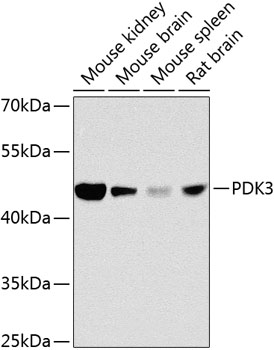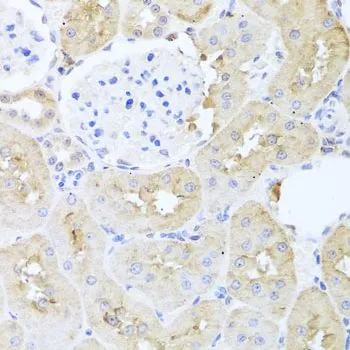
IHC-P analysis of rat kidney tissue using GTX65965 PDK3 antibody. Dilution : 1:100
PDK3 antibody
GTX65965
ApplicationsWestern Blot, ImmunoHistoChemistry, ImmunoHistoChemistry Paraffin
Product group Antibodies
ReactivityHuman, Mouse, Rat
TargetPDK3
Overview
- SupplierGeneTex
- Product NamePDK3 antibody
- Delivery Days Customer9
- Application Supplier NoteWB: 1:500 - 1:2000. IHC-P: 1:50 - 1:100. *Optimal dilutions/concentrations should be determined by the researcher.Not tested in other applications.
- ApplicationsWestern Blot, ImmunoHistoChemistry, ImmunoHistoChemistry Paraffin
- CertificationResearch Use Only
- ClonalityPolyclonal
- ConjugateUnconjugated
- Gene ID5165
- Target namePDK3
- Target descriptionpyruvate dehydrogenase kinase 3
- Target synonymsCMTX6, GS1-358P8.4, pyruvate dehydrogenase kinase, isozyme 3, [Pyruvate dehydrogenase (acetyl-transferring)] kinase isozyme 3, mitochondrial, pyruvate dehydrogenase kinase, isoenzyme 3, pyruvate dehydrogenase, lipoamide, kinase isozyme 3, mitochondrial
- HostRabbit
- IsotypeIgG
- Protein IDQ15120
- Protein Name[Pyruvate dehydrogenase (acetyl-transferring)] kinase isozyme 3, mitochondrial
- Scientific DescriptionThe pyruvate dehydrogenase (PDH) complex is a nuclear-encoded mitochondrial multienzyme complex that catalyzes the overall conversion of pyruvate to acetyl-CoA and CO(2). It provides the primary link between glycolysis and the tricarboxylic acid (TCA) cycle, and thus is one of the major enzymes responsible for the regulation of glucose metabolism. The enzymatic activity of PDH is regulated by a phosphorylation/dephosphorylation cycle, and phosphorylation results in inactivation of PDH. The protein encoded by this gene is one of the three pyruvate dehydrogenase kinases that inhibits the PDH complex by phosphorylation of the E1 alpha subunit. This gene is predominantly expressed in the heart and skeletal muscles. Alternatively spliced transcript variants encoding different isoforms have been found for this gene. [provided by RefSeq, Mar 2010]
- ReactivityHuman, Mouse, Rat
- Storage Instruction-20°C or -80°C,2°C to 8°C
- UNSPSC12352203

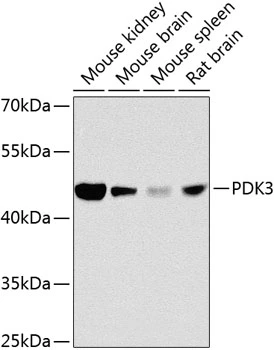
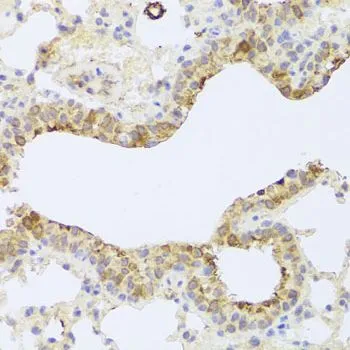


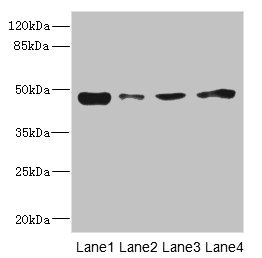
![Non-transfected (–) and transfected (+) 293T whole cell extracts (30 μg) were separated by 10% SDS-PAGE, and the membrane was blotted with PDK3 antibody [N1C2] (GTX104286) diluted at 1:1000. The HRP-conjugated anti-rabbit IgG antibody (GTX213110-01) was used to detect the primary antibody.](https://www.genetex.com/upload/website/prouct_img/normal/GTX104286/GTX104286_42760_20180810_WB_B_w_23060120_814.webp)

